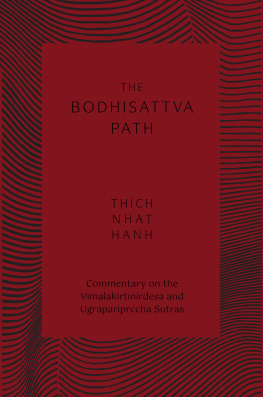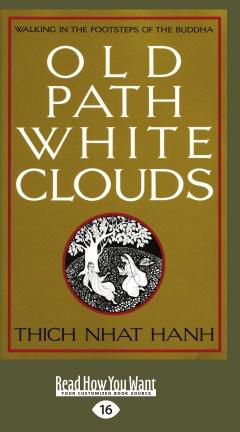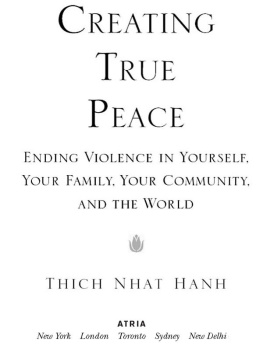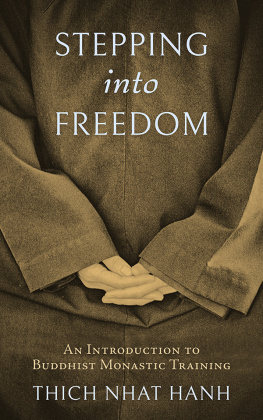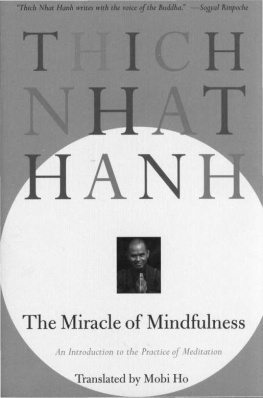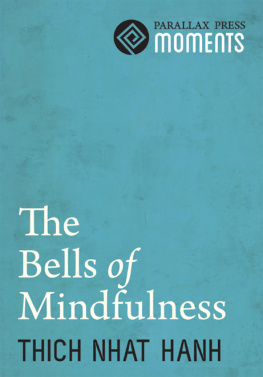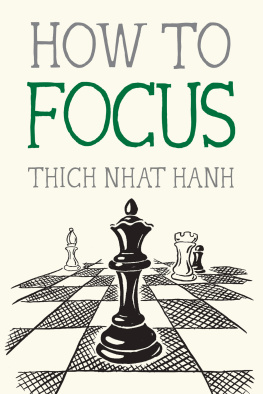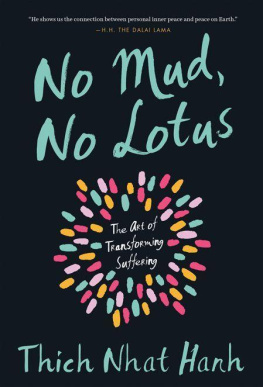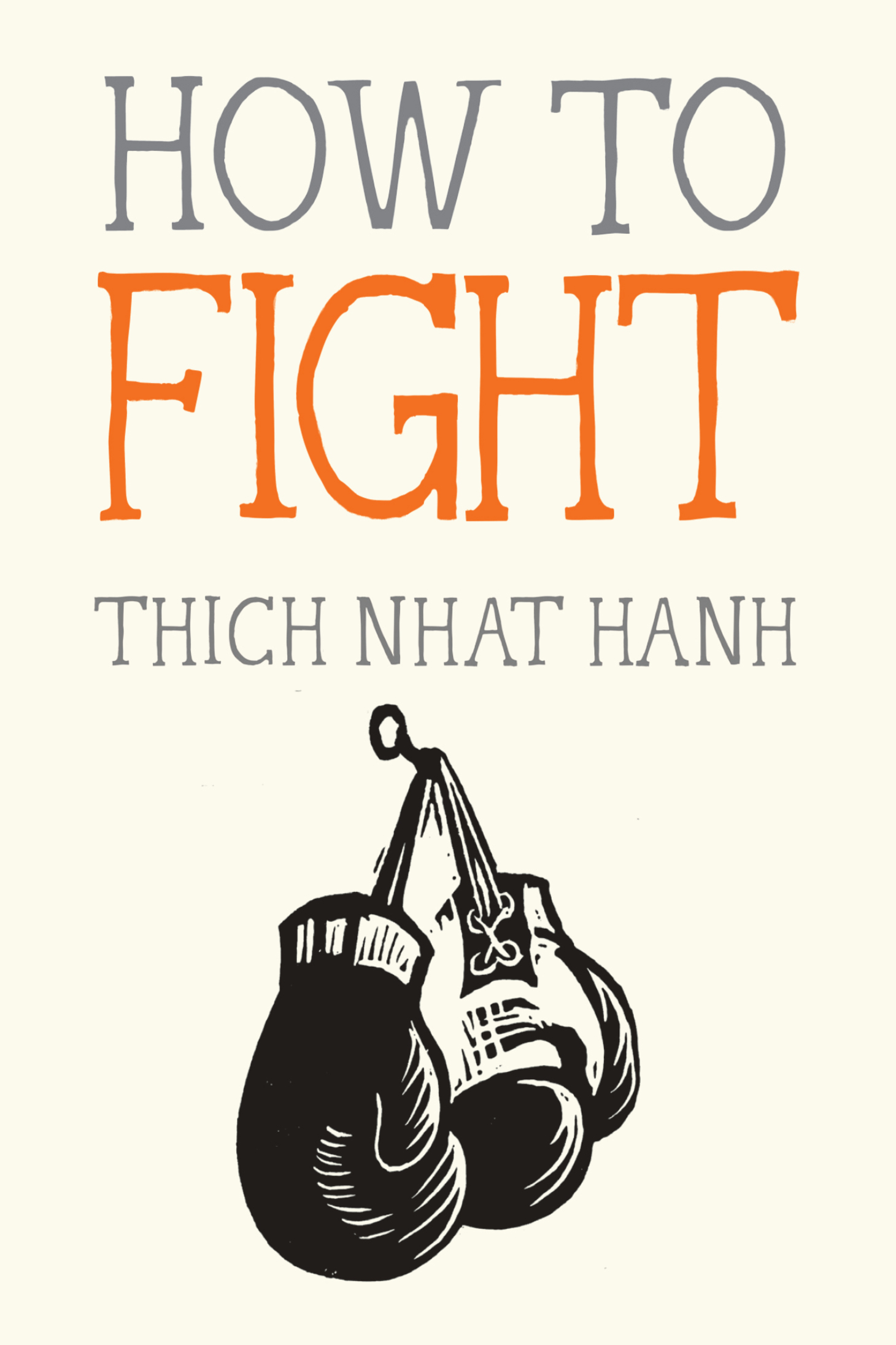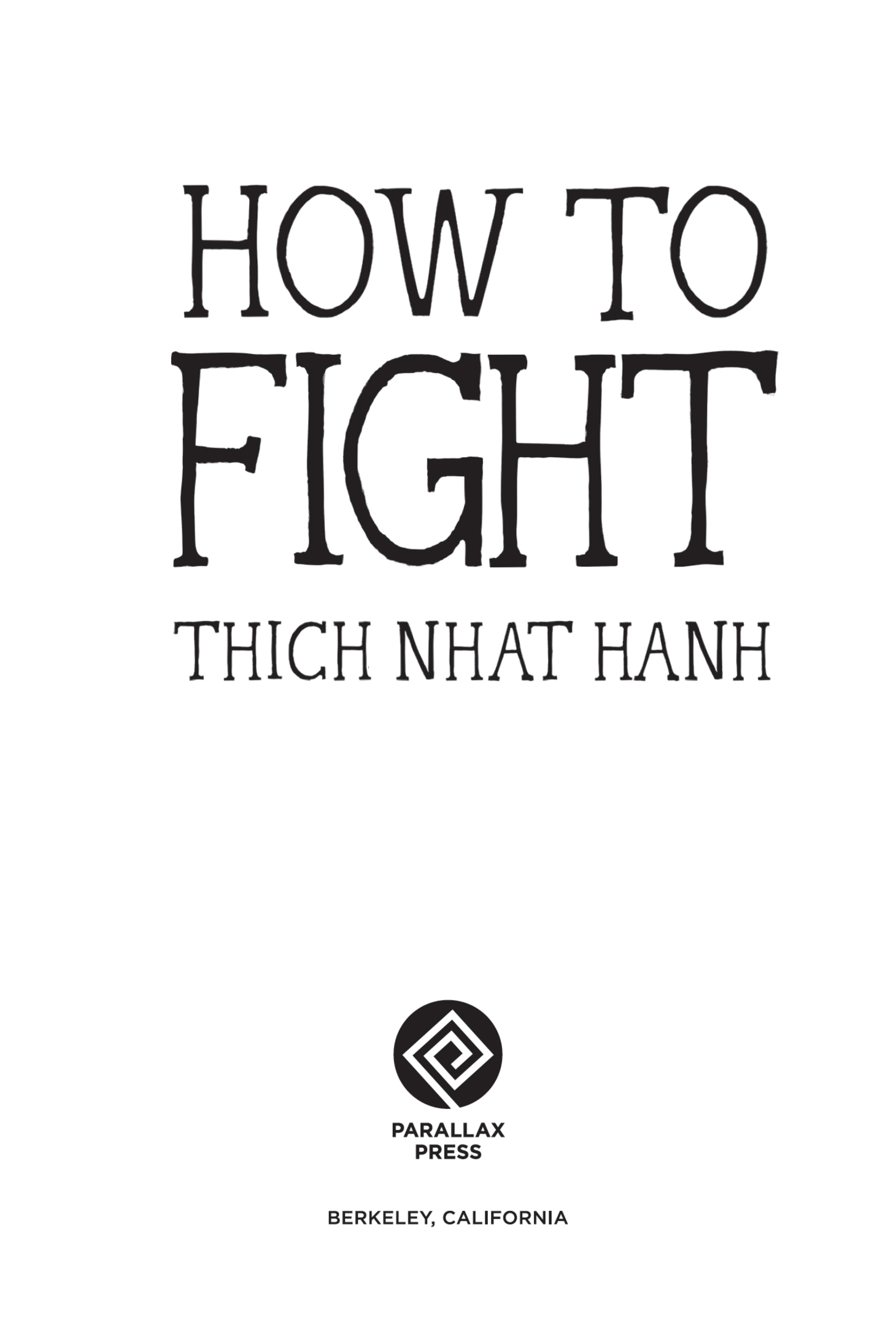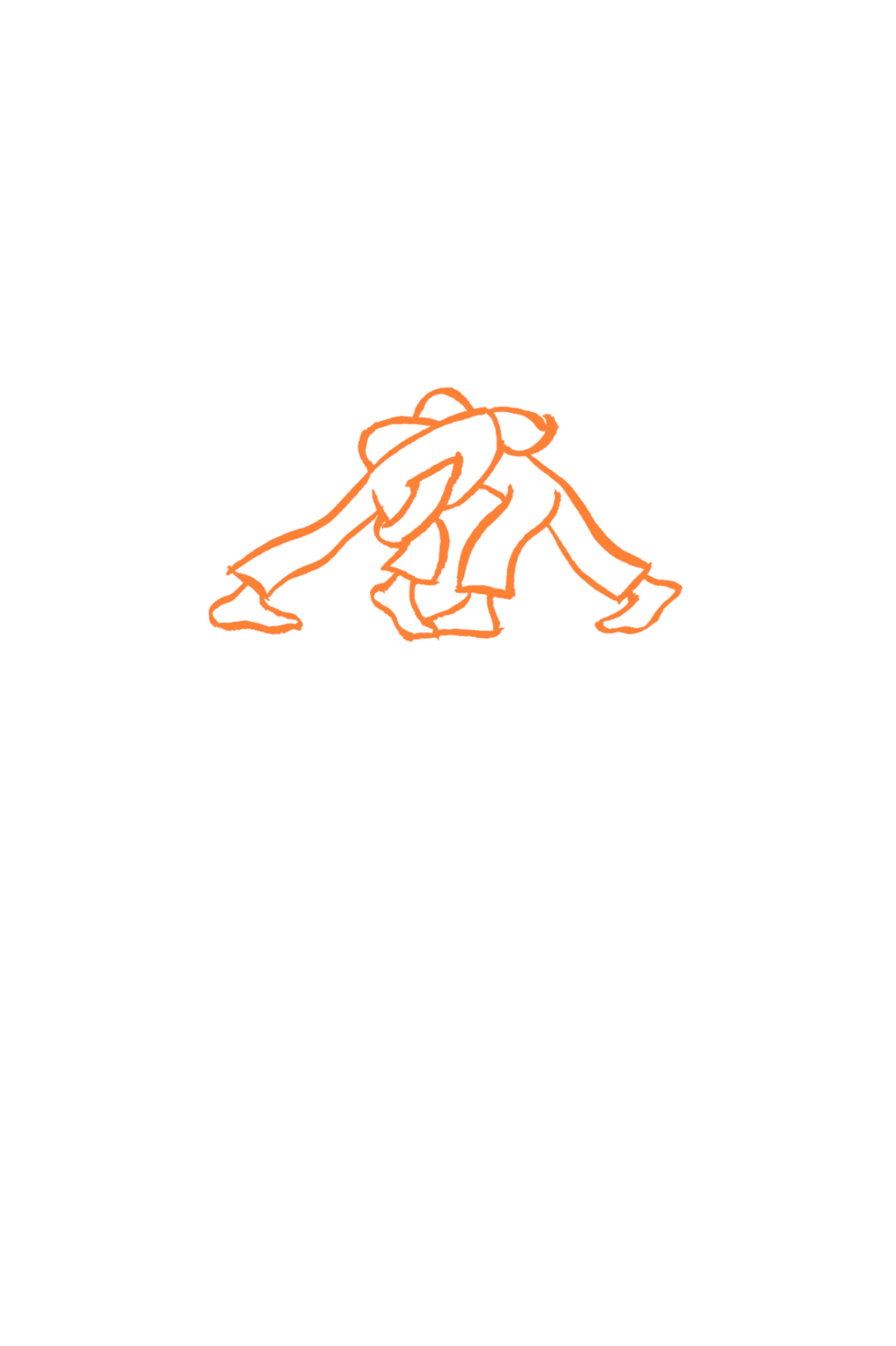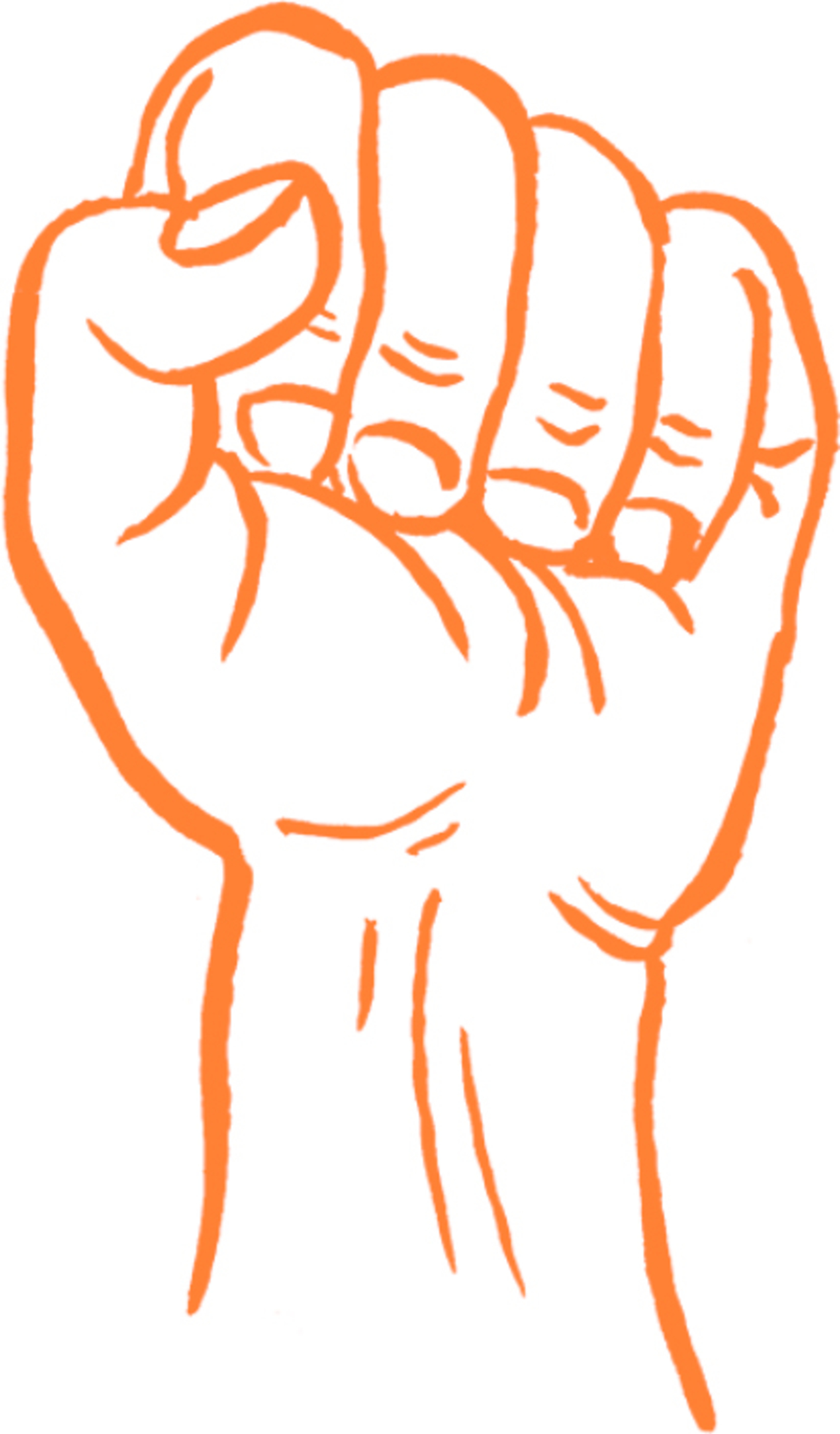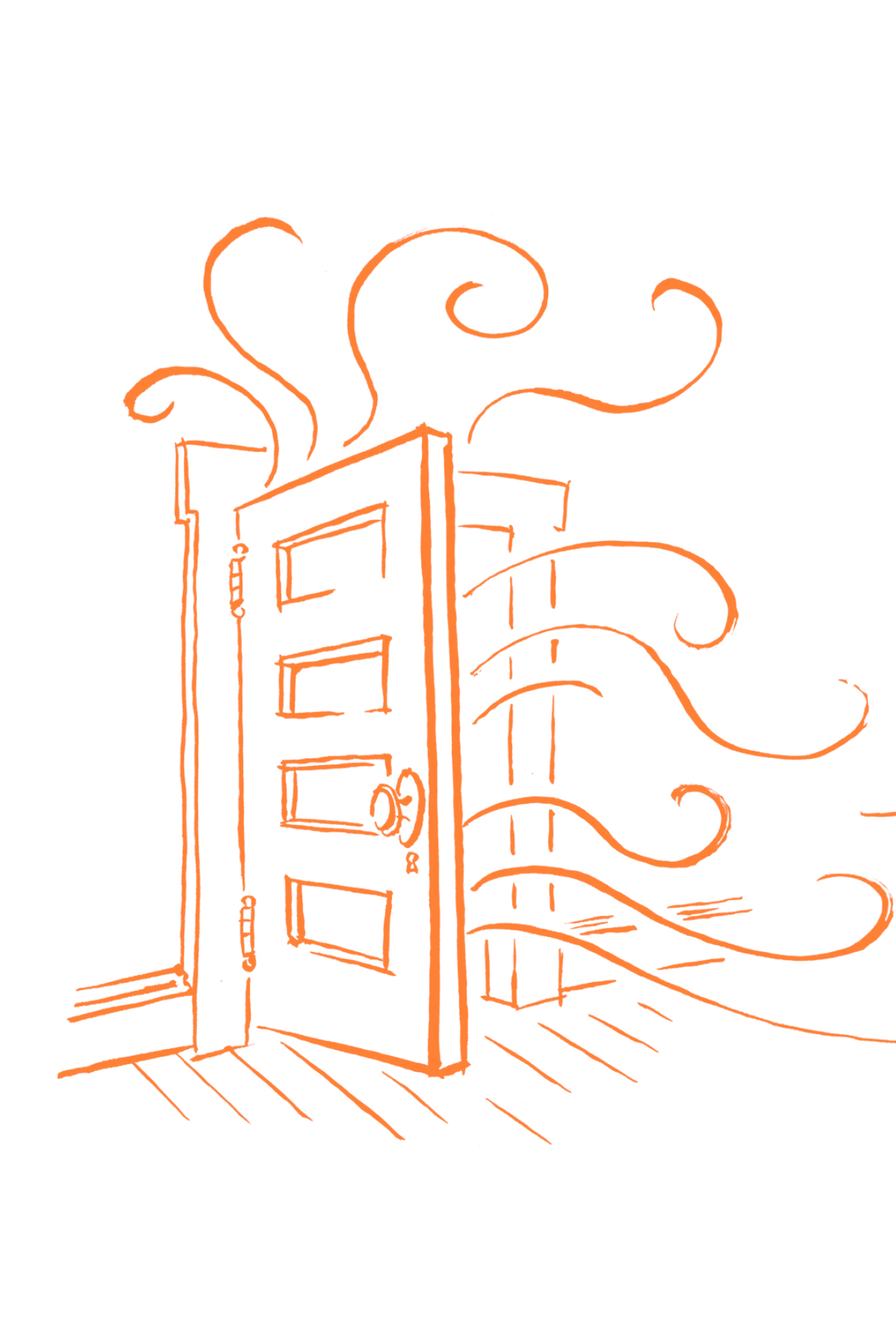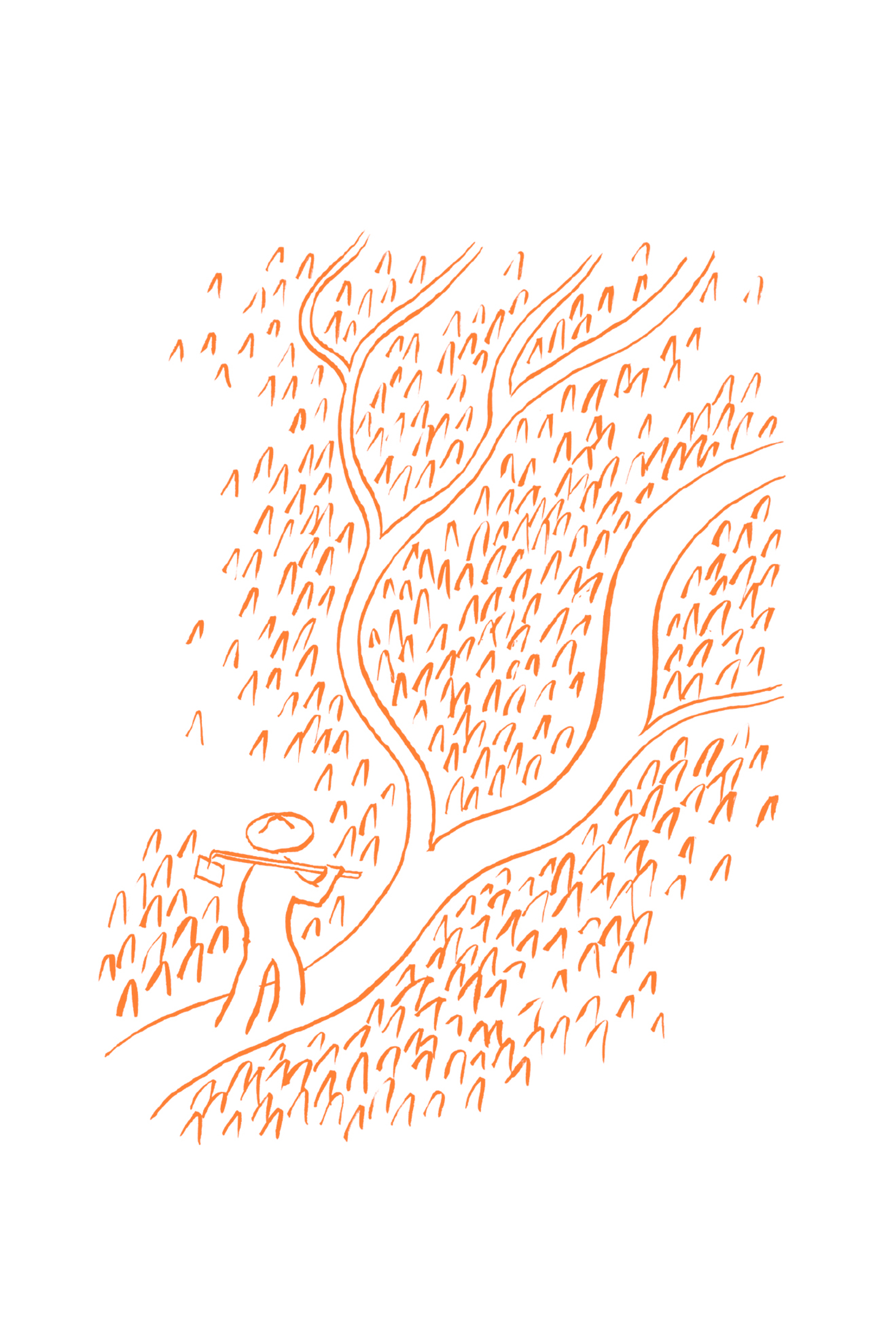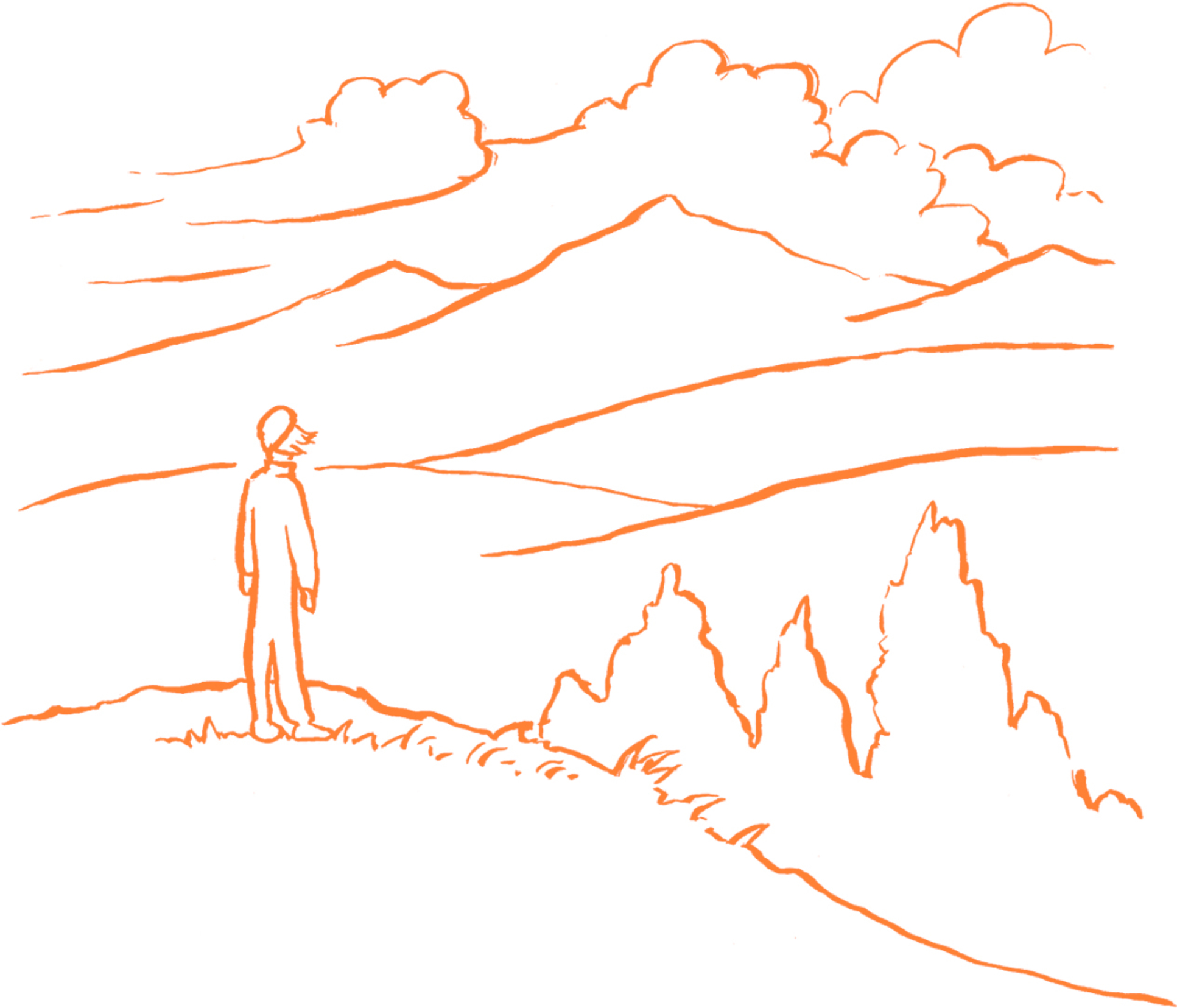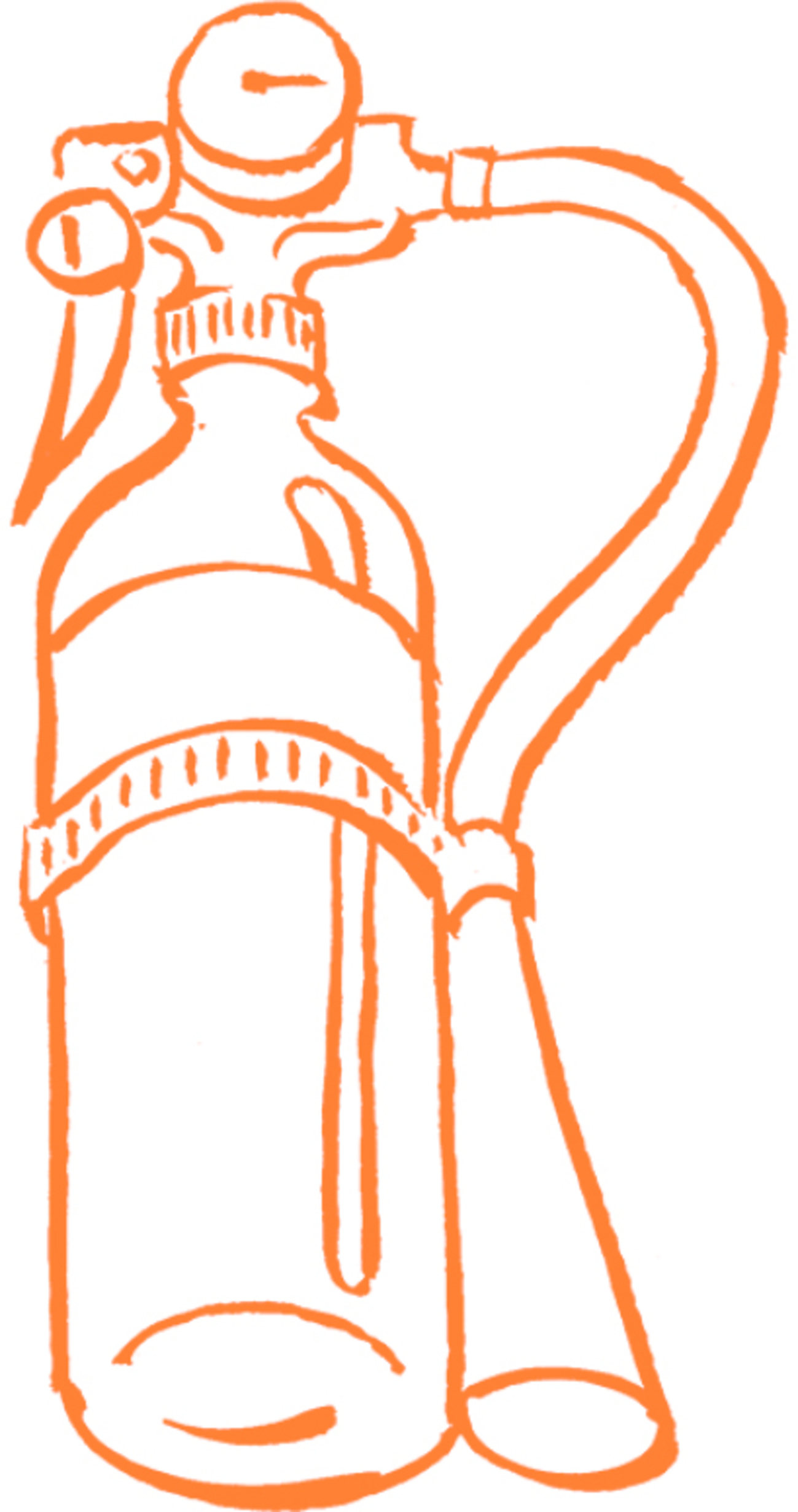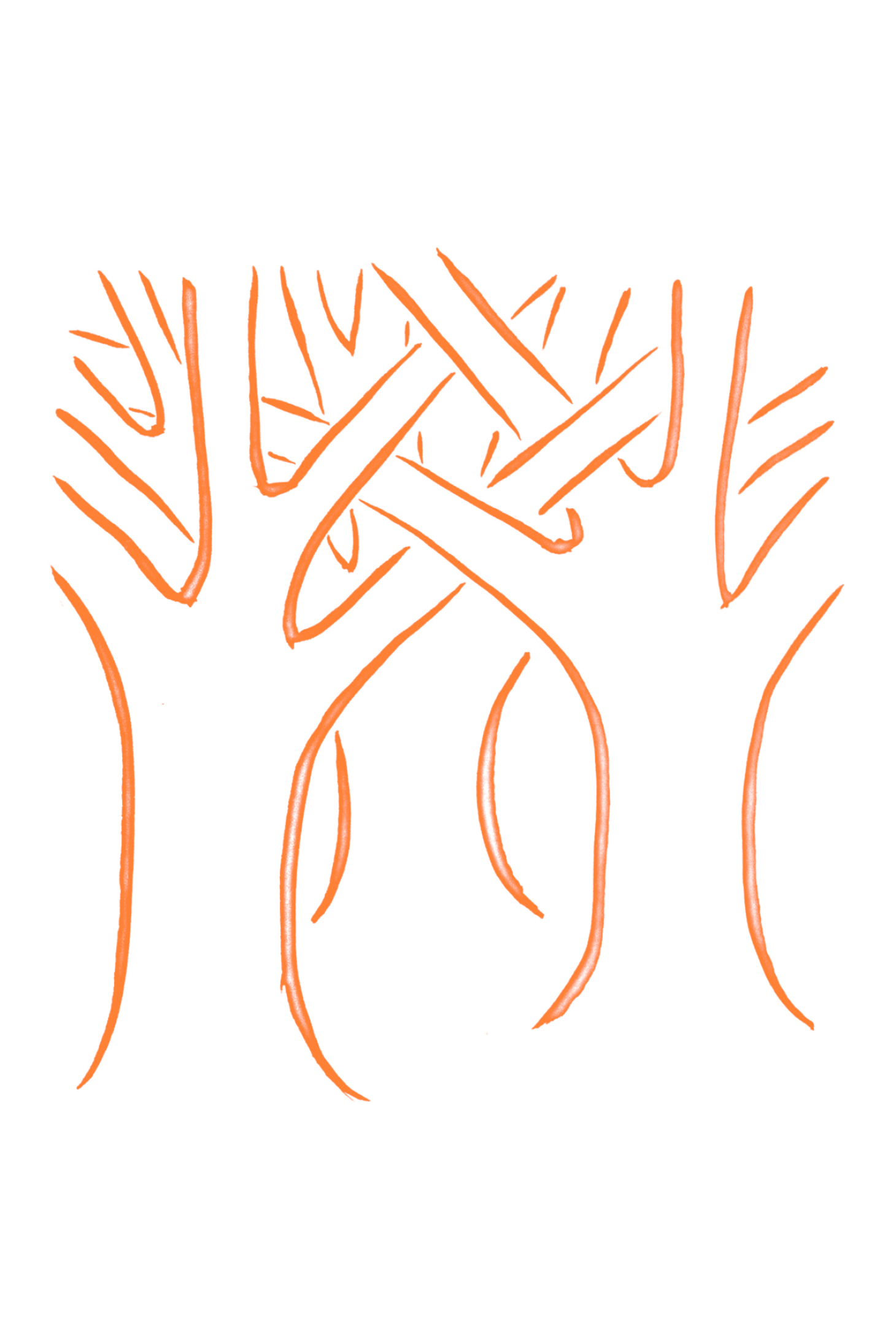Contents
Parallax Press
P.O. Box 7355
Berkeley, California 94707
parallax.org
Parallax Press is the publishing division of
Plum Village Community of Engaged
Buddhism, Inc.
2017 by Plum Village Community of
Engaged Buddhism, Inc.
All rights reserved
Cover and text design by Debbie Berne
Edited by Rachel Neumann
Illustrations by Jason DeAntonis
Ebook ISBN9781941529874
Library of Congress Cataloging-in-Publication Data
is available upon request.
v4.1
a
NOTES ON FIGHTING
OPENING THE DOOR
Never in human history have we had so many means of communicationtelevision, radio, telephone, fax, email, the Internetyet we remain islands, with little real communication between us. When we cannot communicate, we suffer, and we spill our suffering on to other people. We can find ways to open the doors of communication again.
WHERE THE FIGHT BEGINS
When someone says something unkind to you, you may want to retaliate right away. That is where the fight begins. This habitual way of reacting creates a well-worn pathway in your brain. When you travel a neural pathway over and over again, it becomes a habit. Very often that pathway leads to anger, fear, or craving. One millisecond is enough for you to arrive at the same destination: anger and a desire to punish the person who has dared to make you suffer. The mind and the brain are plastic in nature. You can change your mind, your brain, and the way you think and feel. With practice, you can create new neural pathways that lead to understanding, compassion, love, and forgiveness. Mindfulness and insight can intervene, redirecting you down a new neural pathway.
A PAUSE
Suppose someone just said something unpleasant to you. Their words and the sound of their voice give you an unpleasant feeling. You believe they are trying to make you suffer. Of course you feel the desire to react, to say something back. You feel that if you can express your anger, if you can make them suffer, you will get relief. Most of us react in that way. But mindfulness can help us pause for a moment and become aware of the anger building up in us. Stopping gives us a chance to acknowledge and to transform our anger. When we feel anger, irritation, or indignation arising in us, we pause. We stop and come back to our breathing straight away. We do not say or do anything when we are inhabited by this kind of energy, so we dont escalate the conflict. We wait until were calm again. Being able to pause is the greatest gift. It gives us the opportunity to bring more love and compassion into the world rather than more anger and suffering.
WHEN YOUR HOUSE IS ON FIRE
Usually when we are angry with someone we are more interested in fighting with them than in taking care of our own feelings. Its like someone whose house is on fire running after the person who has set fire to their house instead of going home to put out the flames. If we dont go home to take care of our anger, our whole house will burn down. But if we can pause for a moment, we have a chance to acknowledge our anger, embrace it and look deeply to see its true roots. If we can take care of our own anger instead of focusing on the other person, we will get immediate relief. If we can pause, we see that our anger or fear may have been born from a wrong perception or may have its roots in the large seeds of anger or fear within us. When we realize this, it frees us from anger and fear. Practice embracing and looking deeply to see the real roots of your anger. When insight is born, you will be free.
THE WARM AIR DOESNT FIGHT THE COLD AIR
When it is cold in your room, you turn on the heater, and the heater begins to send out waves of hot air. The cold air doesnt have to leave the room for the room to become warm. The cold air is embraced by the hot air and becomes warmtheres no fighting at all between them. Mindfulness is the capacity to be aware of what is going on in the present moment. It is like warm air coming into a cold room. Mindfulness does not fight anger; it recognizes it and says hello. Breathing in, I know that anger has manifested in me; breathing out, I smile to my anger. This is not an act of suppression or of fighting. It is an act of awareness. Once we recognize our anger, we can embrace it with tenderness.
DONT RUN AWAY
To try to run away from suffering is not wise. To stay with it, to look deeply into it, and to make good use of it, is what we should do. It is by looking deeply into the nature of suffering that we discover the path of transformation and healing. Without suffering, there is no happiness and no path to happiness. We can even speak about the goodness of suffering because suffering helps us to learn and grow.
COUNTLESS OBSTACLES
Bodhisattvas are great beings who have dedicated their whole lives to cultivating compassion and liberating others from suffering. So is it possible for a bodhisattva to get angry? Of course it is. Being a bodhisattva doesnt mean you are perfect. Anyone who is aware of what is happening within themselves and tries to wake up other people is a bodhisattva. We are all bodhisattvas, doing our best. Along the way, we may feel angry or frustrated. It is said that when one bodhisattva gets angry at another bodhisattva, countless obstacles are set up everywhere in the universe. When we have hatred and anger in ourselves, they rebound to all quarters. When we have peace and joy in ourselves, our peace and joy will radiate throughout the whole cosmos.
KILLING ANGER
A Brahman asked the Buddha, Master, is there anything you would agree to kill? The Buddha answered, Yes, anger. Killing anger removes suffering and brings peace and happiness. We kill our anger by smiling to it, holding it gently, looking deeply to understand its roots and transforming it with understanding and compassion. The Buddhas response so impressed the man, he became a monk. When his cousin learned of this, he cursed the Buddha to his face. The Buddha only smiled. The cousin became even more incensed and asked, Why dont you respond? The Buddha replied, If someone refuses a gift, it must be taken back by the one who offered it. Angry words and actions hurt oneself first and hurt oneself most of all.


